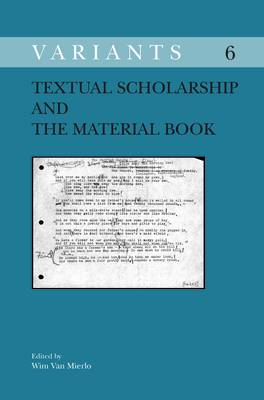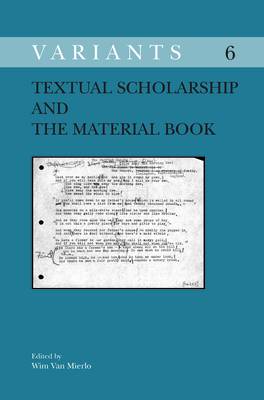
- Afhalen na 1 uur in een winkel met voorraad
- Gratis thuislevering in België vanaf € 30
- Ruim aanbod met 7 miljoen producten
- Afhalen na 1 uur in een winkel met voorraad
- Gratis thuislevering in België vanaf € 30
- Ruim aanbod met 7 miljoen producten
Zoeken
Omschrijving
In the last decades, the emphasis in textual scholarship has moved onto creation, production, process, collaboration; onto the material manifestations of a work; onto multiple rather than single versions; onto reception and book history. Textual scholarship now includes not only textual editing, but any form of scholarship that looks at the materiality of text, of writing, of reading, and of the book.
The essays in this collection explore many questions, about methodology and theory, arising from this widening scope of textual scholarship. The range of texts discussed, from Sanskrit epic via Medieval Latin commentary through English and Scottish Ballads to the plays of Samuel Beckett and the stories of Guimarães Rosa, testifies to the vigour of the discipline. The range of texts is matched by a range of approach: from theoretical discussion of how text 'happens', to analysis of issues of book design and censorship, the connections between literary and textual studies, exploration of the links between reception and commodification in George Eliot, and between information theory and paratext. Through this diversity of subject and approach, a common theme emerges: the need to look further for common ground from which to continue the debate from a comparative perspective.
The essays in this collection explore many questions, about methodology and theory, arising from this widening scope of textual scholarship. The range of texts discussed, from Sanskrit epic via Medieval Latin commentary through English and Scottish Ballads to the plays of Samuel Beckett and the stories of Guimarães Rosa, testifies to the vigour of the discipline. The range of texts is matched by a range of approach: from theoretical discussion of how text 'happens', to analysis of issues of book design and censorship, the connections between literary and textual studies, exploration of the links between reception and commodification in George Eliot, and between information theory and paratext. Through this diversity of subject and approach, a common theme emerges: the need to look further for common ground from which to continue the debate from a comparative perspective.
Alleen bij Standaard Boekhandel
Beoordelingen
We publiceren alleen reviews die voldoen aan de voorwaarden voor reviews. Bekijk onze voorwaarden voor reviews.








